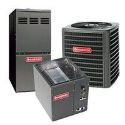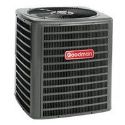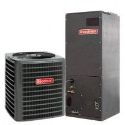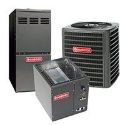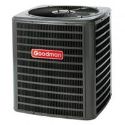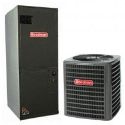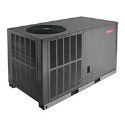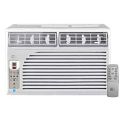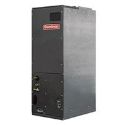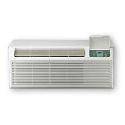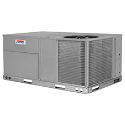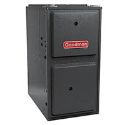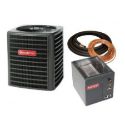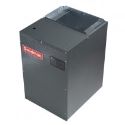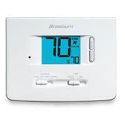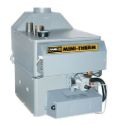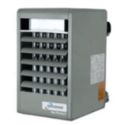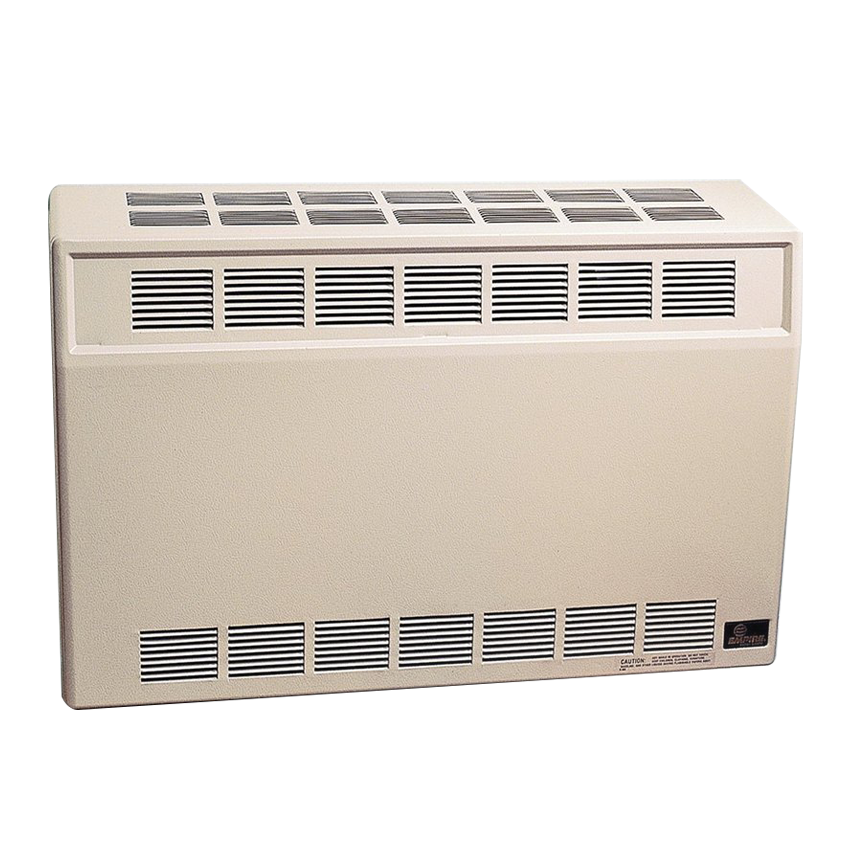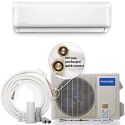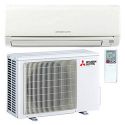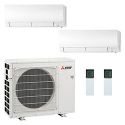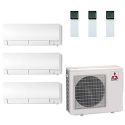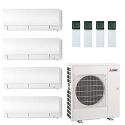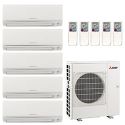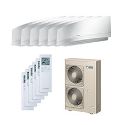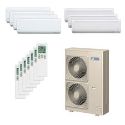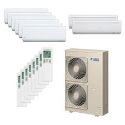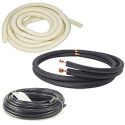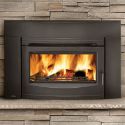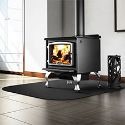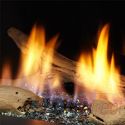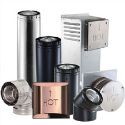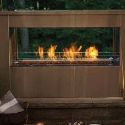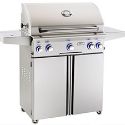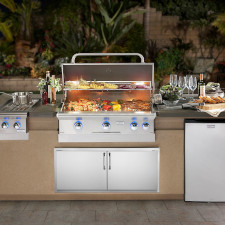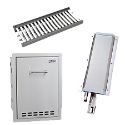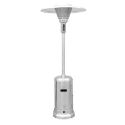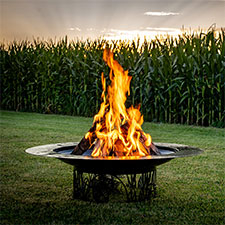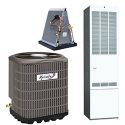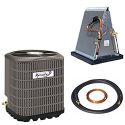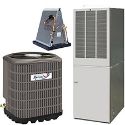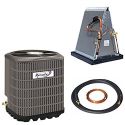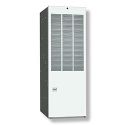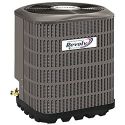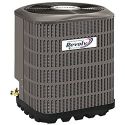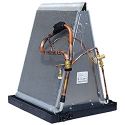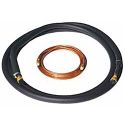Buying residential ACs or air conditioner condensers online, doesn’t mean your options are limited or expensive. HVACDirect.com is a trusted and reliable AC wholesaler that has multiple offices and distribution centers on the East Coast of the United States. We recognize the importance and convenience of buying online compared to buying in the store or through huge wholesalers that only care about making money. With prices that fit any budget and products that are reliable and high-quality, HVACDirect.com is a trusted AC wholesaler that cares about the customer first! Continue reading
Information Library
-
Dangerous Summer Heat Causes Surge In Air Conditioning & Cooling Costs
Summer is here and we're seeing a surge in air conditioning sales. Summer air conditioner sales are nothing new - all it takes is a quick search online for the term summer air conditioner sale and you'll see what we mean. But there's more to this seasonal temperature jump that's causing an uproar this year; it's also the added complications being caused by the heat wave.
Continue reading -
How Does A Heat Pump Work?
Heat pumps are widely popular across the country, providing both efficient heating and cooling. Learn more about how they work and the advantages of heat pump systems.
Continue reading -
What Are Packaged HVAC Systems?
What is a Packaged System HVAC Unit?
When searching for a new heating or cooling system, there are many different types of equipment for home and business owners to select. One economic choice which is well-suited for most residential and commercial applications is a packaged unit. Their efficiency and compact size make them an excellent choice for manufactured homes, single-story Southeast homes and other buildings where there isn't space for a split system.
If you're considering packaged units for heating and cooling, our guide can help you make the right decision. We look at how these units work, typical HVAC package unit prices and other things you need to know.
Continue reading -
HVAC Damage Caused by Winter Weather
Winter weather causes problems across the country, from poor road conditions, slips and falls, and even HVAC system damage! Many homeowners think their furnaces are safe because they’re not exposed to the elements, and their air conditioners are protected because they’re not in use. Here’s how winter weather can hurt your HVAC systems.
Continue reading -
Ductless Heating and Cooling for Residential and Commercial Use
More home and business owners are turning to ductless mini split heating and cooling systems for greater control over comfort and energy savings. These systems are the perfect solution for applications where installing ductwork is not possible due to space or financial constraints. In our guide to ductless heat pumps and air conditioners, we look at the many benefits of ductless HVAC systems for residential and commercial use.
What is a Ductless Mini Split?
Ductless mini split heating and cooling systems are split systems that use no ductwork. An outdoor heat pump unit is connected to one or more individual indoor air handling units strategically placed throughout the home or building. Each air handler supplies a zone (a room, area, or group of rooms) with heating or cooling and can be independently controlled. This lets occupants adjust comfort in a single zone without affecting conditions throughout the building.
Why Go Ductless?
The biggest reason to choose ductless mini splits is their versatility. Ductless heating and cooling systems are often installed to replace inefficient, aged systems such as baseboard heating and window A/C units - especially when there is no existing ductwork. These systems are ideal for single-family homes, older homes, multifamily housing, offices and other applications which demand individualized temperature control.
Are Ductless Mini Splits Efficient?
Ductless mini splits consume less energy compared to forced-air heating and cooling systems or electric furnaces. This generates notable energy savings throughout the year, reducing your ductless mini split cost in any season. With the power to zone heating and cooling, energy use can further be controlled, cutting energy waste and lowering utility bills.
With a multi-zone ductless mini split heating and cooling system, occupants can control temperatures in a single zone without affecting the rest of the home or building. In a household or workplace where everyone has differing preferences, or where electrics and documents have to be kept at a certain temperature, ductless heating and cooling can create comfort for all. They're great for homes and buildings where certain areas don't require the same level of heating and cooling as others, such as unused workspaces and living rooms versus bedrooms.
Do Cold-Climate Mini Splits Work?
The biggest drawback of heat pumps has long been that their efficiency plummets when the temperature drops below freezing. However, recent technology has led to the development of cold-climate ductless heat pumps. These can maintain 80 to 85% of their normal operating efficiency at temperatures as low as 5 degrees Fahrenheit. Residents in northern regions can now experience the same year-round benefits as those who live in warmer areas.
How Efficient is Custom Heating and Cooling?
The energy savings, accessibility and superior comfort control make ductless mini split HVAC systems a smart choice for many home and business owners. Working with a qualified HVAC contractor to install your new system will ensure you gain the maximum benefits from your new ductless HVAC system.
HVACDirect.com has everything you need to create single or multi-zoned comfort in your home or workplace. Shop our selection of ductless mini split heating and cooling systems today!
Ductless Heating and Cooling Frequently Asked Questions
How does a ductless heat pump work?
Ductless mini split systems consist of an outdoor condenser unit and up to eight indoor air handlers connected by copper piping. They transfer heat from one location to another using an evaporation/condensation cycle. The flow of the refrigeration can be reversed depending on whether you want to heat or cool a room.
How efficient are ductless heat pumps?
A ductless heat pump typically uses 25 to 50% less energy than central air systems and electric zoned heating units. Several factors contribute to this, including:
- The ability to independently control each zone
- No air lost due to ductwork leaks or conduction
- High SEER ratings
-
Should You Repair Or Replace Your Furnace?
Should You Repair Or Replace Your Furnace? When a furnace breaks down, the owner may question whether it’s a better decision to repair it or replace it? Several factors should be considered when weighing the financial and comfort impacts of this decision. The following will help you best examine the situation to make the right call for your family, business, or tenants. Ask yourself:
Continue reading -
Single Stage, Two Stage, and Modulating Furnaces
There are many types of furnaces available today with many different options. One option that you need to consider is how many stages your furnace should have. Below we have outlined each stage option that is currently available to help you decide which option might be best for your home. -
Upflow, Downflow and Horizontal Furnaces: What Do They Mean?
Upflow, downflow, and horizontal are very important factors when purchasing your HVAC equipment, however you might be wondering what these terms actually mean. These terms are used to explain the direction of airflow through your system and how your furnace is installed. -
How Do Air Conditioners Work?
We all know that air conditioners can provide you cool air during even the hottest months, but you might be wondering how they actually work. Air conditioners consist of three main components. These components are the compressor, condenser, and an evaporator coil. The compressor and condenser are usually located outside the house while the evaporator coil is located in the house, usually attached to the furnace or air handler.
 Shopping Cart
Shopping Cart


